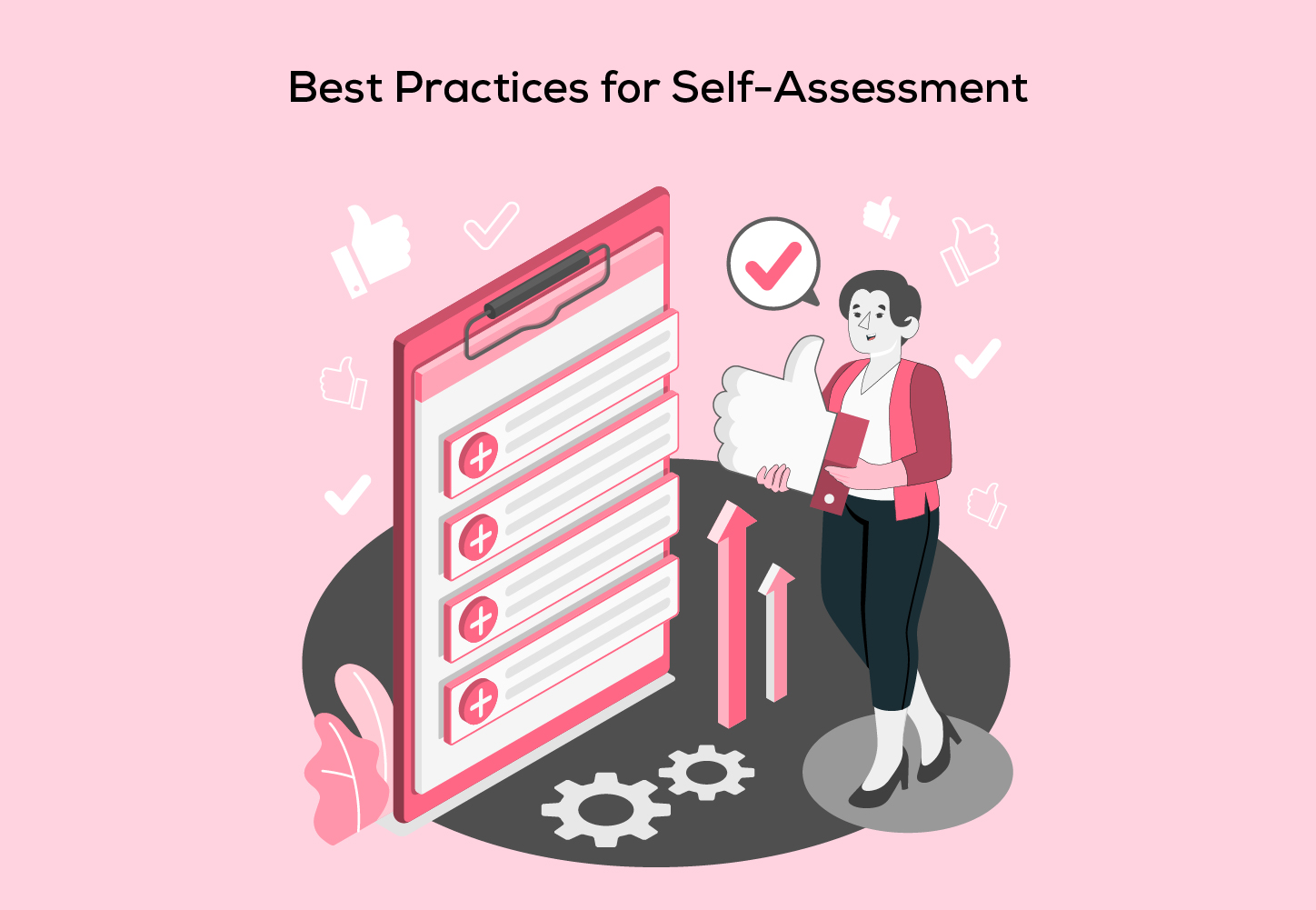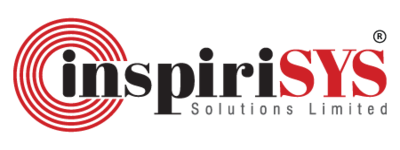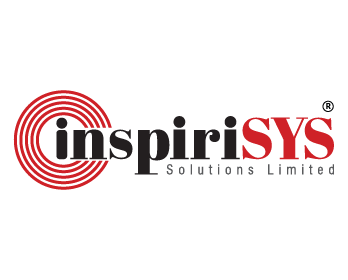In today's highly competitive world, every minute is crucial for organizational development. Organizations cannot afford to compromise on the performance level of their employees.
Although typically employees do not enjoy the ‘performance review’ activity, many HR leaders will agree that it is very crucial for “Performance Management’. But the struggle to design and implement a fair, unbiased and efficient review process doesn’t seem to reduce.
Here arises the critical aspect of ‘employee self-assessment,’ which has now become an integral part of an organization’s appraisal policy because it has grown to be extremely crucial for businesses.
Self-evaluation or self-assessment is crucial for your employees as it emphasizes their accomplishments and helps in the overall functionality of a system. Without employees actively involved in self-assessment, the system may not operate as intended.
Let us learn more about the significance of employee self-assessment which is not only beneficial for the employees but beneficial for the organization as a whole. In this article, we will uncover the benefits and best practices that can positively impact your business.
What is Employee Self-Assessment Process?
An employee self-assessment or self-evaluation is a process where employees are asked to answer some questions on a form. These questions are framed around their job role, enabling employees to evaluate their performances from their own perspective.
During this process, employees are encouraged to introspect about their past performances and explain things from their point of view, which the manager may have probably overlooked.
Regardless of whether organizations conduct this review process once a year, twice a year or more, implementing the employee self-assessment practice proves to be invaluable in understanding employees’ side of the story.
Why is Employee Self-Assessment important?
Just as regular health check-ups are crucial for understanding one’s well-being and making necessary lifestyle and dietary changes, similarly, professional check-ups are essential for identifying areas of improvement. They enable individuals to evaluate their strengths, weaknesses and professional goals, ensuring a successful career.
This specific type of performance review allows employees to set goals that will benefit them both personally and professionally, fostering growth and improvement in their professional performance.
Various studies, including the Harvard Business School’s research emphasize the profound connection between self-reflection and learning. The research reveals that a tremendous impact of self-reflection can be seen in one’s performance. The individual gains an improved perception of his/her abilities.
Benefits of Self-Assessment
For Employees
- Better Communication: Encouraging employees to express their experiences and aspirations through the self-assessment process sets the ground for open communication. This practice helps in improving workplace relationships with peers and managers and fosters a collaborative spirit within the team.
- Explore Blind Spots: Self-assessment helps employees realise their contributions during their review process, which the manager might have overlooked. It is also the best way to uncover hidden skills that are identified by the manager but unknown to the employee.
- Promotion Opportunities: This practice of self-review should be in sync with employees' regular performance review schedule. It helps employees to reflect on their performance which showcases their best achievements throughout the year.
- Develops Self-Awareness: When employees are aware of themselves, they leave a positive impact on the organization. A self-aware employee is assured of his strengths and weaknesses and is confident about his abilities.
- Set Realistic Goals: The self-assessment process encourages employees to set realistic and achievable goals while taking ownership of their successes.
- Better Situational Responsiveness: Self-assessment helps employees to quickly adapt to changes and improve their responsiveness to various situations.
Harness the power of the Johari Window to unlock self-awareness and enhance interpersonal understanding on your self-assessment journey.
For Managers
By asking employees to evaluate themselves, managers can gain insights into their employees' perspectives on their roles, how they fit into their teams, etc. Here are some benefits that self-evaluation offers to managers.
- Enables Performance Review: Managers are presented with a wider viewpoint about their employees while conducting an employee’s performance management.
- Welcoming New Perspectives: Managers learn about how to deal with employee productivity issues. The idea is to be receptive to diverse viewpoints fostering a dynamic learning environment and innovative problem-solving skills.
- Assigning the Right Tasks to The Right Person: They learn to give the right tasks to their team members depending on their areas of expertise and interests.
- Creating an Effective Work Environment: An employee feels more comfortable in an environment which keeps them engaged and trusted. It also helps in enhancing their productivity and great customer satisfaction. Managers can use insights gained from self-evaluations to tailor the work environment to meet employees' needs and preferences, ultimately promoting a positive and productive workplace culture.
For Organization
Self-assessments aren’t just for the benefit of employees and managers, they can also have a positive impact on the organization. Here are some benefits that employee self-evaluation offers to organizations.
- Make Valuable Decisions: The feedback provided during employee self-assessment can help the HR team to make valuable decisions related to talent management, resource allocation, and strategic planning.
- Identify Potential Gaps: In terms of learning and development, self-assessment works as a valuable tool in identifying potential gaps and opportunities that could benefit from target training.
- Customize Learning Paths: By allowing employees to highlight specific areas that need the utmost attention, organizations can tailor their education and learning initiatives to meet their needs, ultimately enhancing their performance.
- Deeper Commitment: When employees actively engage in their development, they become participants in the process. They tend to cultivate a deeper sense of commitment towards the organization’s mission and goals.
HR Leader's Role in Improving Employee Self-Assessments
The HR team plays a crucial role in building a dynamic performance management practice. But performance management doesn’t come without its set of challenges. For example, research by Gallup revealed that only 2 out of 10 employees agree that their performance is managed in a way that motivates high-level performance.
Self-assessments can be used to transform performance reviews into more of a collaborative process rather than making employees feel that the evaluation is something that is imposed upon them. Instead of being told their worth, they get to become conversation partners, bringing their perspectives and aspirations to the table.
Now the question is who sets the tone for this harmonious change? It is our HR leaders, who cultivate a supportive and non-judgmental environment, where growth takes centre stage. When individual development thrives, the organization’s success will naturally follow.
Providing clear guidelines and expectations ensures that employees understand the purpose and goals during the self-assessment review. HR leaders act as a conductor in guiding the employees on reflection points and information sharing.
Here are a few employee self-assessment sample questions:
- What do you aim to achieve in the company within the next year, and looking ahead, in the next 5 or 10 years?
- Which skills do you think you need to work on to reach these goals?
- What do you see as your top three strengths in your current role?
- Is there a particular skill or strength you want to develop or enhance?
- Have you identified and worked on improving any weaknesses since your last review? How successful were your efforts?
- Highlight one major project or task you handled this year/quarter. How did your contributions make an impact, and why?
- Share a situation, conflict, or project that didn't go as planned this year/quarter. What steps did you take to address it, and what was the result?
- How would you describe your work-life balance, and are there any changes that could improve it?
- On a scale of 1 to 100, how would you rate your performance?
Prepare a comprehensive self-evaluation to gauge your progress, strengths, and areas for growth, fostering continuous personal development. Check out the video on the Self-evaluation process.
Integrating Self-Assessments into Performance Management
Incorporating employee self-evaluation into the performance management cycle increases the overall efficiency of the process. Streamlining this integration requires aligning self-assessment timelines with routine performance reviews and facilitating a detailed 360-degree evaluation. Fostering a culture of transparent communication and feedback to support employees throughout the self-assessment process, establishes a constructive feedback loop crucial for continuous performance enhancement.
Points to Remember When Crafting One’s Self-Assessment
- Support Achievements with Data: Regardless of one’s industry, success in business and employment revolves around goal attainment. Individuals must include supporting data for all their accomplishments when preparing for self-assessment.
- Maintain a Positive Tone when Discussing Challenges: Individuals must have an optimistic outlook towards their challenges. If they approach their work with seriousness, obstacles are inevitable. When drafting one’s self-evaluation, embracing the adage "fortune favours the courageous" can contribute to a positive narrative.
- Emphasise Roles and Responsibilities: It is important to encourage employees to articulate their roles and responsibilities in their self-performance reviews. By providing specific examples of completed self-evaluations that outline these aspects can enhance the clarity of their contributions.
- Advocate Mentioning Growth Opportunities: Both management and staff must be aware of growth prospects. By outlining potential avenues for development in their self-reviews, a collaborative environment can be nurtured, where everyone across the organizational hierarchy works collectively towards the common goal of maximizing overall ROI.
Best Practices for Self-Assessment

- Develop Templates for Comprehensive Self-Evaluations
Streamlining the process of assessing employee performance can be done by generating templates for both subjective and objective responses. To facilitate this for your team, consider providing sample self-evaluation forms to make the task more straightforward.
- Leverage Automation Tools for Impartial Results
Bring in cloud-based platforms that can monitor performance appraisal reports and maintain overall staff records. Implementing automation tools allows for unbiased results, relying on predetermined criteria and reliable inputs from every employee.
- Maintain Professionalism in Evaluating Self-Assessments
Understand that self-evaluation is a sophisticated HR management strategy. As a manager, one must approach the analysis of employees' self-evaluations in a professional manner.
- Define Metrics, Analytical Forms and Tools in Advance
Before introducing a self-evaluation, managers should establish predefined criteria, analytical forms and necessary tools. A well-planned approach eliminates chaos, ensuring all tasks are efficiently executed.
- Foster an Open Environment for Constructive Feedback
Since there are diverse perspectives, it is challenging to predict which mindset might offer a ground-breaking concept. Therefore, it is sensible to encourage team members to provide constructive criticism, fostering an environment where diverse viewpoints contribute to continuous improvement.
Conclusion
‘Employee Self-Assessment’ emerges as a powerful tool for both personal and organizational success. It enables organizations to foster continuous learning and development when individuals are encouraged to reflect upon their achievements, goals and areas of improvement. This enables employees to take charge of their professional journeys and align with the mission of their organization.
Start your journey of empowerment and success by making employee self-assessment the foundation of a resilient and thriving organizational culture.



